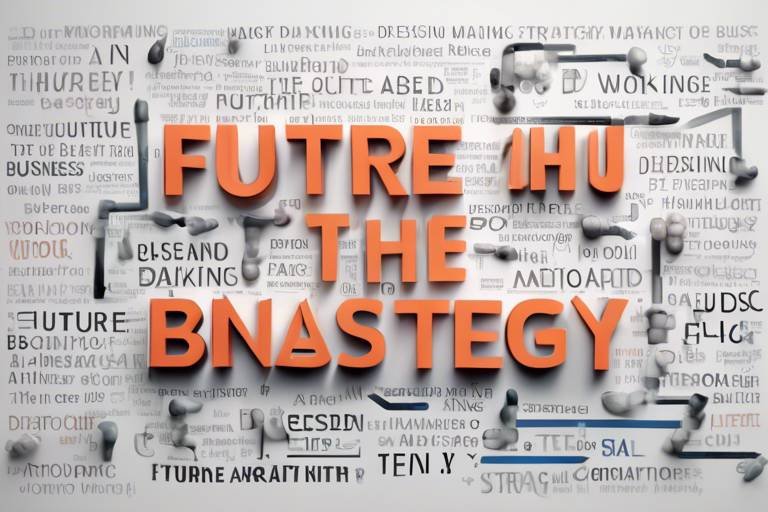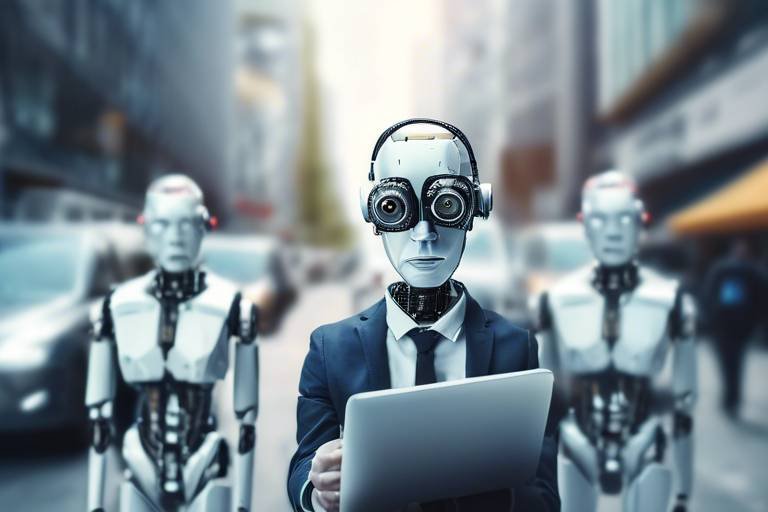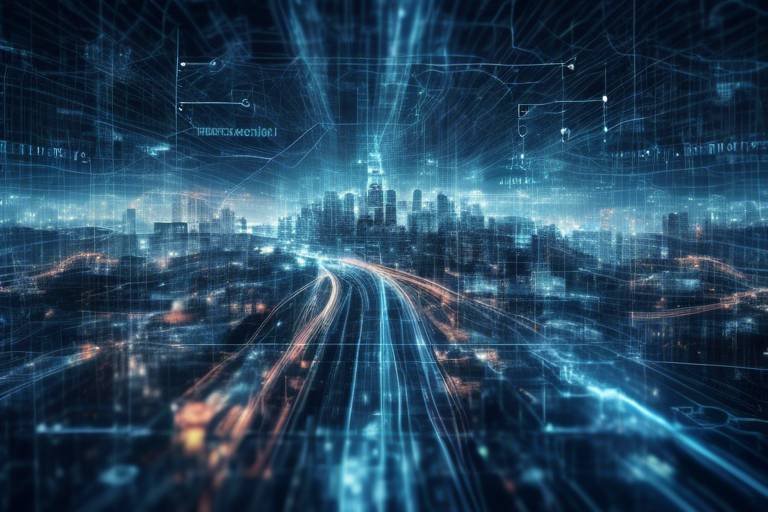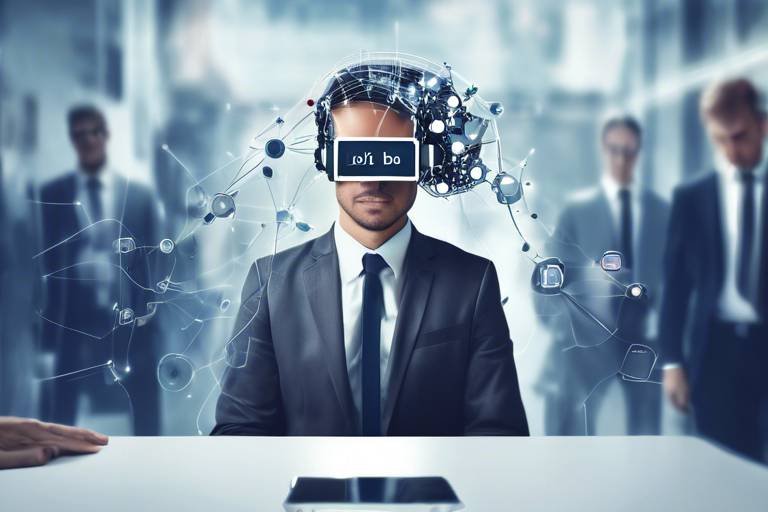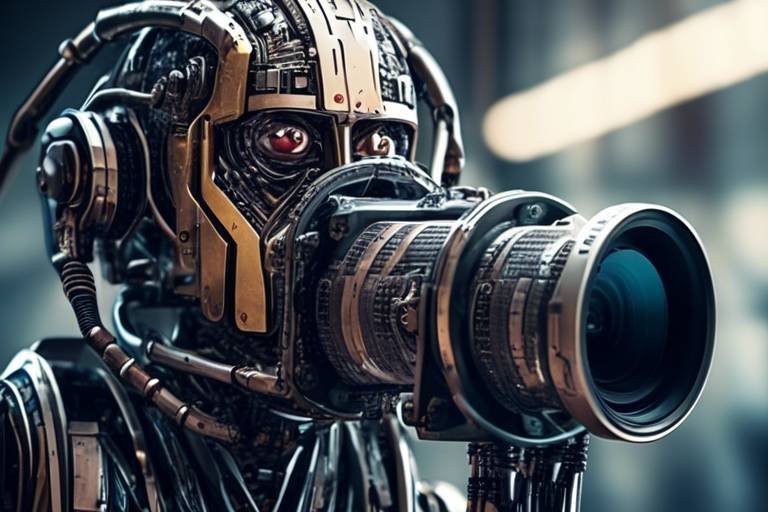Artificial Intelligence: Future of the Music Industry
In today's fast-paced world, the music industry is undergoing a significant transformation, and at the heart of this revolution is artificial intelligence (AI). Imagine a world where musicians can harness the power of algorithms to create mesmerizing melodies, where listeners receive music recommendations tailored just for them, and where live performances become immersive experiences that captivate audiences like never before. This is not a distant dream; it's happening right now! As we dive into the impact of AI on the music industry, we'll explore how it's reshaping creativity, enhancing user experiences, and even posing challenges that we need to navigate carefully.
AI is revolutionizing music composition by enabling artists to generate new sounds and melodies, fostering innovation and creativity in the industry. With tools powered by machine learning, musicians can experiment with various styles, genres, and sounds that they might not have considered otherwise. For instance, imagine an artist using AI to analyze thousands of songs to find unique combinations of chords and rhythms. This not only enhances their creative process but also opens up a world of possibilities for new genres and styles that could emerge. The fusion of technology and artistry is leading to a new era of music creation that is as exciting as it is unpredictable.
Music streaming platforms are leveraging AI algorithms to analyze user preferences, creating a personalized listening experience that keeps users engaged. These systems are not just about suggesting popular tracks; they delve deep into the listening habits of users to curate playlists that resonate with individual tastes. Have you ever wondered how Spotify seems to know exactly what you want to hear next? That's the magic of AI at work!
Machine learning techniques play a crucial role in predicting user preferences. By analyzing data from millions of users, these algorithms can identify patterns and trends that might go unnoticed. This enables platforms to create tailored playlists that not only reflect what you like but also introduce you to new music that you might love. It's like having a personal DJ who knows your musical soul!
One of the most effective methods used in recommendation systems is collaborative filtering. This technique utilizes data from multiple users to recommend songs based on shared tastes. For example, if you and your friend have similar listening habits, the platform will suggest tracks that your friend enjoys but you haven't discovered yet. This creates a more interactive and engaging music discovery process.
On the other hand, content-based filtering analyzes the features of songs, such as genre, tempo, and instrumentation, to suggest music that aligns with a listener's tastes. If you love upbeat pop songs, the system will recommend tracks with similar characteristics, ensuring that your playlist stays fresh and exciting.
AI tools empower independent musicians by providing accessible resources for music production, distribution, and marketing. With the rise of AI-driven platforms, aspiring artists can now produce high-quality music without the need for expensive studio time. This leveling of the playing field allows for greater diversity in the music industry, giving a voice to those who may have been overlooked in the past. The democratization of music production is truly a game-changer!
While the integration of AI in music brings numerous benefits, it also raises ethical questions regarding copyright, originality, and the role of human creativity in the artistic process. As AI-generated music becomes more prevalent, the legal landscape surrounding copyright and ownership of AI-created works is increasingly complex. Who owns a song created by an AI? Is it the programmer, the user, or the machine itself? These questions need thoughtful consideration as we move forward.
The rise of AI in music creation has led to a complex web of copyright issues. As AI systems generate music, determining the ownership of these creations becomes a legal gray area. Artists and producers must navigate these challenges carefully to protect their work and ensure fair compensation.
Another concern is the quality vs. quantity debate. The ease of AI music production raises fears about the potential flooding of the market with low-quality content. While technology can enhance creativity, it also challenges traditional standards of artistry. Will we see a decline in the value of music as it becomes easier to produce? This question lingers in the air as we embrace the possibilities of AI.
AI is set to enhance live music experiences through interactive technologies, creating immersive environments and personalized performances for audiences. Imagine attending a concert where the lighting, sound, and visuals are all optimized by AI, making each show a unique experience that resonates with the audience on a deeper level.
The rise of virtual concerts, powered by AI, offers new opportunities for artists to connect with global audiences, transcending geographical limitations. Fans can experience live performances from the comfort of their homes, and artists can reach a wider audience than ever before. It's a win-win situation that redefines how we experience music.
AI technologies are improving stage production by optimizing lighting, sound, and visuals, creating more engaging and memorable live performances. With AI analyzing audience reactions in real-time, artists can adjust their performances to enhance the overall experience, making every concert a truly unforgettable event.
- How is AI changing music production?
AI tools are making music production more accessible, allowing artists to create high-quality music without traditional barriers. - What are the ethical concerns surrounding AI in music?
Issues like copyright, originality, and the role of human creativity are central to the discussion about AI's impact on music. - Will AI replace musicians?
While AI can assist in music creation, it is unlikely to replace the unique human touch that artists bring to their work.
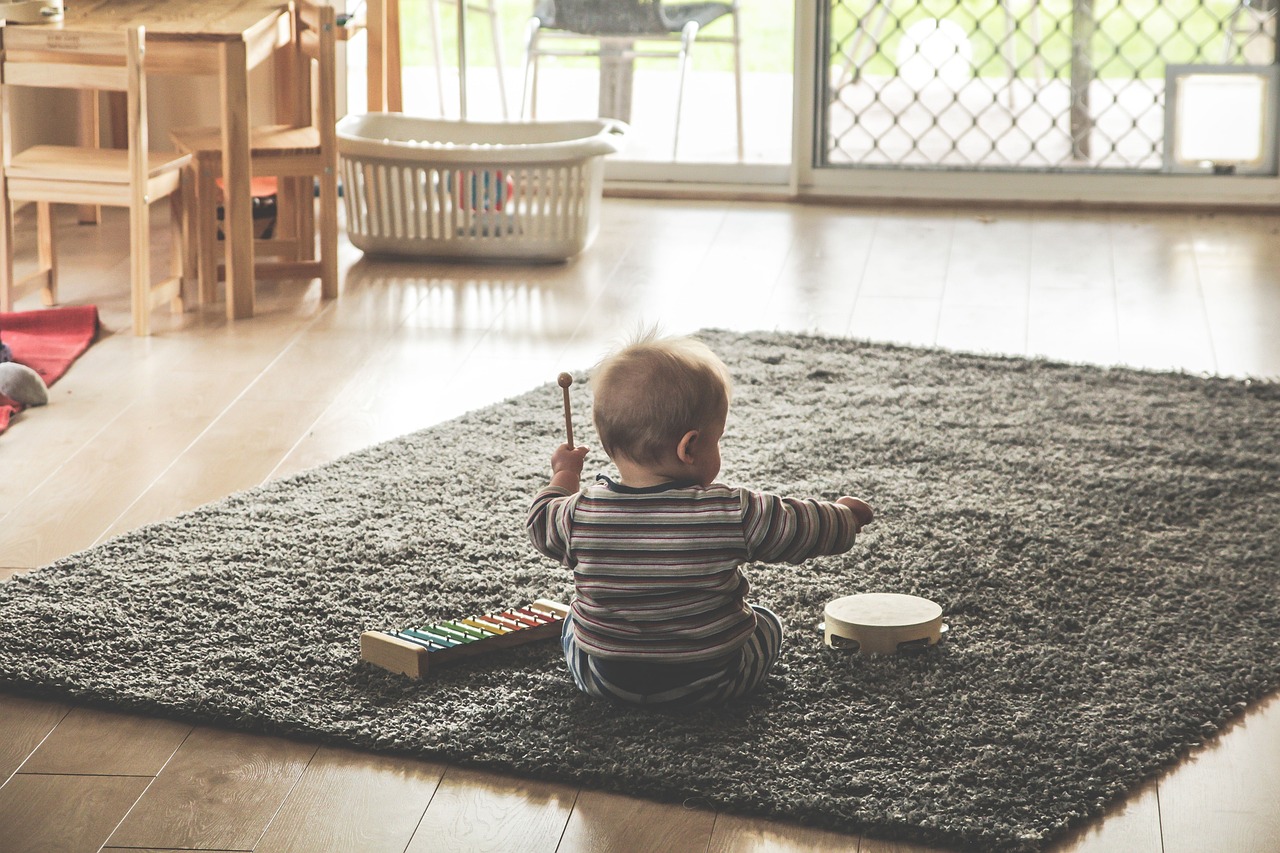
The Rise of AI in Music Creation
Artificial Intelligence is not just a buzzword; it's a game changer in the music industry. Imagine a world where artists can effortlessly generate new sounds and melodies, pushing the boundaries of creativity. This is the reality we are stepping into, thanks to AI. Artists are now harnessing the power of advanced algorithms to compose music that resonates with audiences in ways we never thought possible. With AI, the creative process is not just accelerated, but it also opens up avenues for experimentation that were previously inaccessible.
For instance, AI-powered tools can analyze vast amounts of musical data, identifying patterns and styles that can inspire artists. These tools can assist in creating everything from catchy pop hooks to complex orchestral arrangements. The beauty of AI in music creation lies in its ability to synthesize different genres and styles, allowing musicians to explore unchartered territories in their compositions. Imagine a hip-hop artist collaborating with classical composers through AI-generated compositions, blending beats with symphonic elements. It's like having an infinite pool of inspiration at your fingertips!
Moreover, AI can also assist in the technical aspects of music production. With machine learning algorithms, AI can help refine sounds, mix tracks, and even master songs with precision that rivals human producers. This not only saves time but also reduces costs, making high-quality music production accessible to a broader range of artists, including independent musicians who may not have the budget for professional studios.
But how does this all work? Let’s break it down:
- Sound Generation: AI can create unique sounds by analyzing existing music and generating new audio samples that mimic or innovate upon those sounds.
- Melody Composition: AI algorithms can generate melodies based on specific parameters set by the artist, such as mood, tempo, and style.
- Lyric Writing: Some AI tools are even capable of writing lyrics, offering artists a fresh perspective and new ideas for their songs.
As we embrace this technological revolution, it's essential to acknowledge the collaborative nature of AI in music creation. Rather than replacing human creativity, AI serves as a partner, enhancing the artistic process. This synergy between technology and creativity can lead to groundbreaking music that captivates listeners and challenges traditional norms.
In conclusion, the rise of AI in music creation is not just about efficiency; it's about expanding the horizons of what is possible in music. As artists continue to explore and integrate these technologies, we can expect to hear a new wave of music that is rich, diverse, and profoundly innovative. The future of music is here, and it’s powered by AI!

AI-Driven Music Recommendation Systems
In today's fast-paced digital world, music lovers often find themselves overwhelmed by the sheer volume of content available at their fingertips. This is where come into play, transforming the way we discover and enjoy music. By harnessing the power of artificial intelligence, these systems analyze user preferences, listening habits, and even social interactions to curate personalized playlists that resonate with individual tastes.
Imagine walking into a café and hearing a song that perfectly matches your mood. That’s the magic of AI recommendation systems! These algorithms sift through vast amounts of data, learning from your interactions to suggest tracks that you might not have discovered otherwise. They create a tailored listening experience that feels almost like having a personal DJ. But how exactly do they work?
At the heart of these recommendation systems lies machine learning. This subset of AI allows algorithms to learn from data and improve over time. By analyzing patterns in user behavior, machine learning techniques can predict what songs you might enjoy based on your past choices. For example, if you frequently listen to upbeat pop tracks, the system might suggest similar artists or tracks that fit that vibe. This predictive capability not only enhances user satisfaction but also keeps listeners engaged with the platform.
One of the most popular methods used in AI-driven recommendations is collaborative filtering. This technique leverages data from multiple users to identify trends and similarities. For instance, if two users have a high overlap in their listening history, the system might recommend songs that one user has loved to the other. This creates a more interactive experience, making music discovery feel like a shared journey.
Another powerful approach is content-based filtering. This method analyzes the characteristics of songs—such as genre, tempo, and even lyrical themes—to suggest music that aligns with a listener's existing preferences. For example, if you enjoy jazz with a smooth tempo, the system will likely recommend more tracks that fall within that specific category. This dual approach, combining collaborative and content-based filtering, ensures that users receive a well-rounded selection of music tailored to their unique tastes.
Moreover, the effectiveness of these recommendation systems can be illustrated in the following table:
| Recommendation Technique | Description | Example |
|---|---|---|
| Collaborative Filtering | Uses data from multiple users to suggest songs based on shared preferences. | If User A and User B both like Artist X, User A may be recommended songs liked by User B. |
| Content-Based Filtering | Analyzes song features to recommend music similar to what the user already likes. | If a user likes a particular jazz track, they may be recommended other jazz songs with a similar tempo. |
As we continue to embrace the digital age, AI-driven music recommendation systems are becoming increasingly sophisticated. They not only enhance our listening experiences but also shape the way artists reach their audiences. By understanding user preferences and making informed suggestions, these systems are revolutionizing music consumption, making it more personalized and engaging.
In conclusion, the power of AI in music recommendation systems cannot be overstated. They serve as a bridge connecting listeners to the vast ocean of music available today, ensuring that every individual can find the perfect soundtrack for their life. As technology continues to evolve, we can only imagine how these systems will further enhance our musical journeys.
- How do AI music recommendation systems work?
They analyze user data and preferences to suggest songs that align with individual tastes using techniques like collaborative and content-based filtering. - Can AI recommendations improve over time?
Yes, as the system gathers more data about user interactions, it can refine its suggestions to better match listener preferences. - Are these systems only for popular music?
No, AI-driven recommendations can cater to a wide range of genres, including independent and niche artists.

The Role of Machine Learning
Machine learning (ML) is not just a buzzword; it's a powerful tool that's reshaping the music industry in ways we could only dream of a few years ago. Imagine a world where your favorite music platform knows exactly what you want to listen to before you even press play. Sounds like magic, right? But it’s all thanks to the intricate algorithms and data analysis techniques that machine learning employs. By analyzing vast amounts of data—from your listening habits to the time of day you tune in—ML can predict your preferences with astonishing accuracy.
One of the most fascinating aspects of machine learning in music is its ability to adapt and learn over time. The more you listen, the smarter the system gets. For instance, if you suddenly find yourself vibing to a new genre, the algorithm takes note and starts adjusting its recommendations accordingly. This creates a personalized listening experience that's not just tailored to your current tastes but evolves as you do. It’s like having a DJ who knows your mood and can curate the perfect playlist on the fly!
To delve deeper, let’s look at how machine learning operates within music recommendation systems. There are two primary approaches that platforms often use:
- Collaborative Filtering: This technique relies on data from multiple users. By examining the listening habits of similar users, the system can recommend songs that you might enjoy based on others' preferences. It’s almost like crowd-sourcing your playlist!
- Content-Based Filtering: Here, the focus is on the characteristics of the songs themselves. The algorithm analyzes features such as tempo, genre, and even the emotional tone of the music to suggest tracks that align with your tastes. So, if you love upbeat pop songs, the system will find more tracks with a similar vibe.
The combination of these techniques not only enhances user satisfaction but also drives engagement on streaming platforms. Users are more likely to discover new artists and songs that resonate with them, thus keeping them hooked and returning for more. This is particularly beneficial for independent artists who rely on these platforms to reach wider audiences. When users discover a new favorite song, they’re more inclined to explore the artist’s entire catalog, creating opportunities for exposure that might not have existed otherwise.
In summary, machine learning is revolutionizing the way we experience music. It creates a more personalized, engaging, and dynamic interaction between listeners and their favorite tracks. As technology continues to evolve, we can expect even more innovative uses of machine learning in music, making each listening experience more unique than the last.
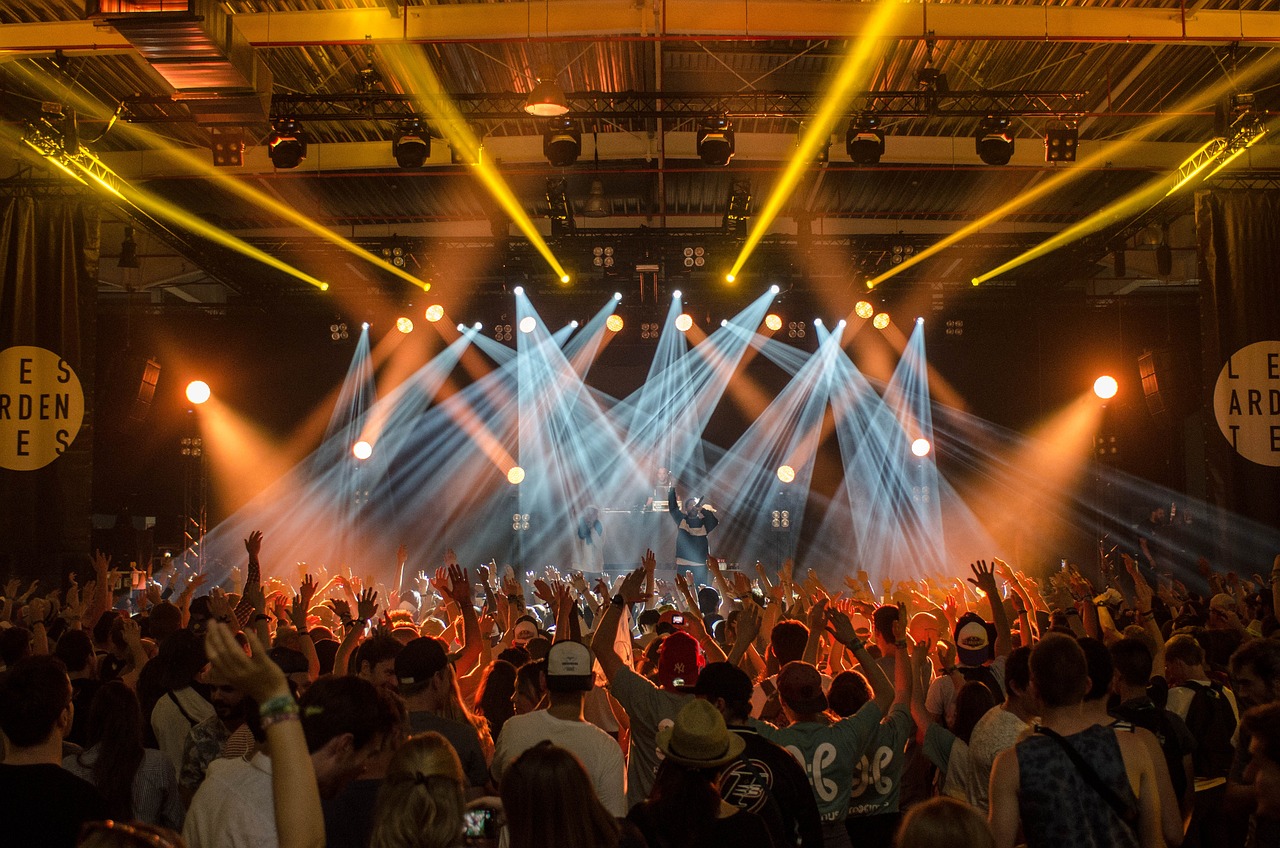
Collaborative Filtering Techniques
Collaborative filtering is a powerful technique used by music streaming platforms to enhance user experience by recommending songs based on the listening habits of similar users. Imagine walking into a party where everyone shares their favorite tracks, and you get to discover hidden gems that resonate with your taste. That's the essence of collaborative filtering—it’s like having a personal DJ who knows what you’ll love based on what others with similar preferences enjoy.
This approach works by analyzing vast amounts of data from users, identifying patterns, and making predictions about what you might like next. For instance, if you and a friend both enjoy indie rock, the system will look at other tracks that your friend has listened to and enjoyed, suggesting them to you. It’s a dynamic way of discovering music that feels personal and engaging.
Collaborative filtering can be divided into two main types: user-based and item-based. User-based filtering focuses on finding users who are similar to you and recommending songs that those users have liked. On the other hand, item-based filtering looks at the relationships between songs. If two songs have been liked by many of the same users, they are likely to be similar in style or genre, making them good candidates for recommendation.
Here’s a quick comparison of these two techniques:
| Technique | Description |
|---|---|
| User-Based Filtering | Recommends songs based on the preferences of similar users. |
| Item-Based Filtering | Recommends songs based on the relationships between songs themselves. |
While collaborative filtering has revolutionized how we discover music, it’s not without its challenges. One major issue is the "cold start" problem, which occurs when new users or songs enter the system. Without enough data, it becomes difficult to make accurate recommendations, leaving newcomers feeling a bit lost in a sea of options. However, as platforms gather more data over time, these challenges can be mitigated, leading to a richer and more personalized listening experience.
In conclusion, collaborative filtering techniques are at the forefront of music recommendation systems, creating a vibrant ecosystem where users can explore new sounds while feeling connected to a larger community of music lovers. It’s a blend of technology and social interaction, making music discovery not just a task, but an exciting journey.
- What is collaborative filtering?
Collaborative filtering is a method used to recommend items based on the preferences and behaviors of similar users. - How does collaborative filtering work?
It works by analyzing user data to find patterns and similarities, allowing platforms to suggest music that users with similar tastes have enjoyed. - What are the challenges of collaborative filtering?
Challenges include the cold start problem, where new users or items lack sufficient data for accurate recommendations. - Is collaborative filtering used in other industries?
Yes, it’s widely used in e-commerce, movie streaming, and social media to enhance user engagement and satisfaction.

Content-Based Filtering
Content-based filtering is a fascinating approach that revolutionizes how we discover music. Imagine walking into a record store where every album cover is tailored just for you. That's the magic of content-based filtering in the digital music landscape! This technology analyzes various attributes of songs, such as genre, tempo, lyrics, and even the instrumentation used, to recommend tracks that align with your unique tastes.
At its core, content-based filtering utilizes algorithms that dissect the features of songs you already enjoy. For example, if you frequently listen to upbeat pop songs with catchy hooks, the system will identify those characteristics and suggest similar tracks. It’s like having a personal DJ who knows exactly what you like! This method not only enhances your listening experience but also encourages you to explore new artists and genres that you might not have considered otherwise.
One of the key benefits of content-based filtering is its ability to adapt over time. As you listen to more music, the system learns from your preferences and fine-tunes its recommendations. This dynamic learning process creates a personalized music journey that evolves with you. However, it’s essential to understand that while content-based filtering is incredibly effective, it does have its limitations. For instance, it may inadvertently narrow your musical exposure by focusing too much on your existing preferences, potentially missing out on hidden gems outside your usual genres.
To illustrate how content-based filtering works, consider the following table that summarizes the main features analyzed by these algorithms:
| Feature | Description |
|---|---|
| Genre | The category of music, such as rock, pop, jazz, etc. |
| Tempo | The speed of the music, usually measured in beats per minute (BPM). |
| Lyrical Content | The themes and sentiments expressed in the lyrics. |
| Instrumentation | The specific instruments used in the track. |
In conclusion, content-based filtering is a powerful tool that enhances the way we discover music. By focusing on the characteristics of songs, it provides tailored recommendations that resonate with individual listeners. However, as we embrace this technology, it’s important to remain open to exploring new sounds and styles beyond our comfort zones to fully appreciate the vast world of music.
- What is content-based filtering? Content-based filtering is a recommendation system that analyzes the features of songs to suggest tracks that align with a listener’s preferences.
- How does content-based filtering work? It works by examining attributes like genre, tempo, and lyrical content of songs that a user has previously enjoyed to make personalized recommendations.
- Are there limitations to content-based filtering? Yes, it may narrow a user’s music exposure by focusing too much on existing preferences, potentially missing out on new genres or artists.

Impact on Independent Artists
In the ever-evolving landscape of the music industry, independent artists are finding themselves at a pivotal crossroads, thanks to the rise of artificial intelligence. With traditional barriers to entry being dismantled, AI technologies are providing these musicians with unprecedented access to tools that were once only available to major labels. Imagine being able to compose, produce, and distribute music from the comfort of your own home, without the need for a multi-million dollar studio. This is not just a dream; it’s a reality that AI has made possible.
AI-driven platforms are empowering independent artists in several significant ways. For instance, music production software equipped with AI capabilities can analyze existing tracks and suggest enhancements or even generate new melodies that align with current trends. This allows artists to explore their creativity without the constraints of traditional music theory. Moreover, AI tools can assist in mastering tracks, ensuring that the final product meets industry standards, all while saving time and costs.
Furthermore, the distribution of music has been revolutionized by AI. Independent artists can now utilize algorithms that analyze listener data to determine the best platforms for their music, effectively targeting their audience. This level of insight means that even a small artist can achieve global reach, something that was nearly impossible in the past. With AI, marketing strategies can be tailored specifically to individual listeners, increasing the chances of songs being discovered and appreciated.
In addition to production and distribution, AI is also enhancing the way independent artists connect with their fans. Social media platforms are increasingly using AI to help artists engage with their audience through personalized content. For example, AI can analyze interactions and suggest optimal times for posting updates, thus maximizing engagement. This kind of data-driven approach helps artists build a more loyal fanbase, which is crucial for their long-term success.
However, it’s important to note that while AI offers numerous advantages, it also comes with its own set of challenges. As the market becomes saturated with content generated by AI, independent artists may find it difficult to stand out. The key will be to blend AI capabilities with their unique artistic voice. After all, while AI can assist in the creation process, the heart and soul of music still come from the artist's personal experiences and emotions.
In conclusion, the impact of AI on independent artists is profound and multifaceted. With the right tools and strategies, these musicians can navigate the complexities of the modern music landscape, harnessing technology to amplify their voices. As we look to the future, it’s clear that the relationship between AI and independent artists will continue to evolve, shaping not just their careers but the entire music industry.
- How can AI help independent artists in music production?
AI tools can assist in composing, mastering, and producing music, making high-quality production accessible to all. - What are the benefits of AI in music distribution?
AI helps in targeting specific audiences, optimizing distribution channels, and increasing the chances of music being discovered. - Can AI replace human creativity in music?
While AI can generate music, the unique emotional connection and personal touch of human artists remain irreplaceable. - What challenges do independent artists face with AI?
As the market gets flooded with AI-generated content, standing out and maintaining originality becomes a challenge.
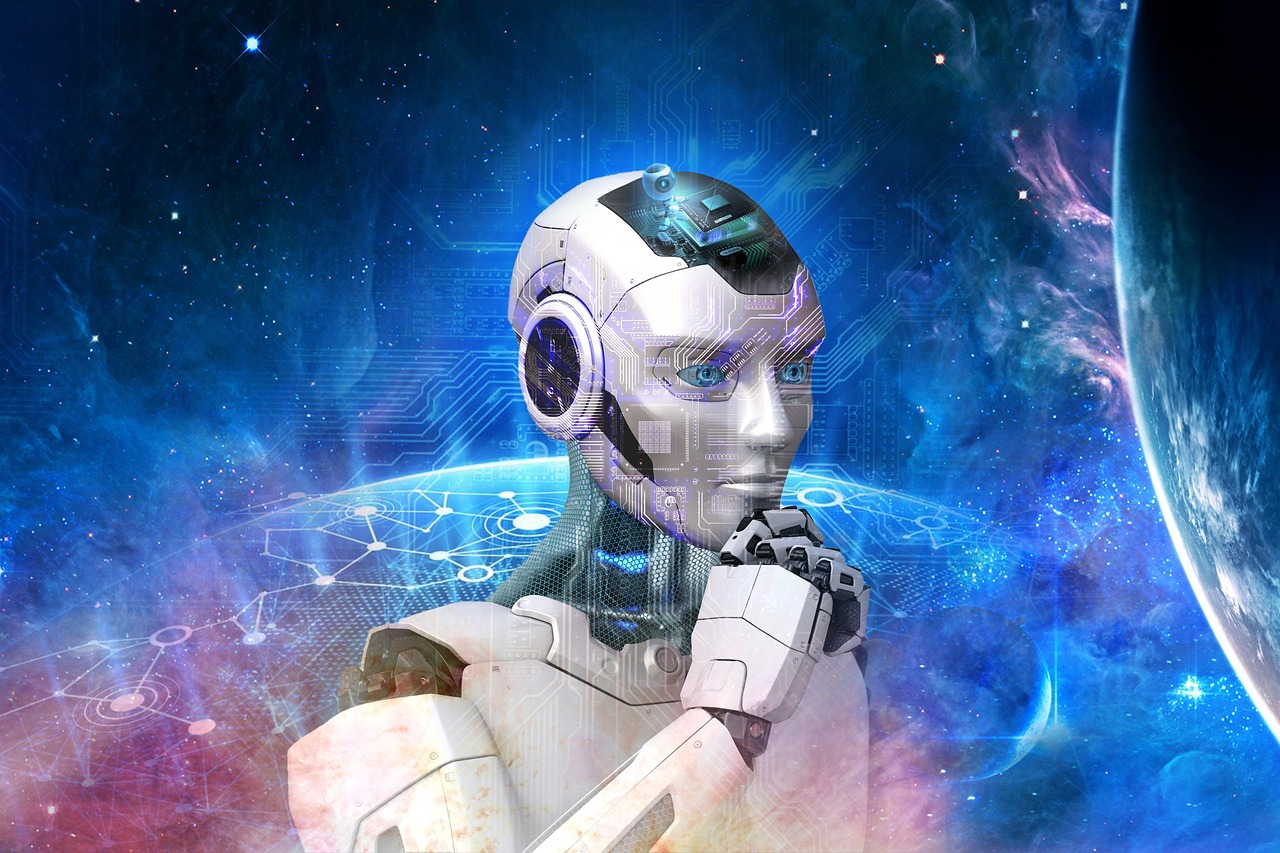
Challenges and Ethical Considerations
The integration of artificial intelligence in the music industry is not without its challenges and ethical dilemmas. As we embrace the possibilities that AI brings, we must also confront the questions it raises about copyright, originality, and the role of human creativity. These issues are becoming increasingly complex and multifaceted, prompting discussions among artists, producers, and legal experts alike.
One of the most pressing concerns relates to copyright issues. As AI-generated music gains traction, the legal frameworks that govern ownership and copyright are struggling to keep pace. Who owns a song created by an AI? Is it the programmer, the user, or the AI itself? These questions are not just theoretical; they have real implications for artists who may find their work being used without proper attribution or compensation. The evolving nature of AI means that we might need to rethink our traditional notions of authorship and intellectual property.
Moreover, there is an ongoing debate about quality versus quantity. The ease and speed with which AI can produce music can lead to an oversaturation of the market with content that may lack the depth and emotional resonance of human-created works. While it’s fantastic that anyone can now create and distribute music, the potential for a flood of low-quality content raises concerns about what defines true artistry. Will we be able to discern genuine talent amidst a sea of algorithmically generated tunes? This is a question that artists and listeners alike must grapple with as AI continues to evolve.
Another critical aspect to consider is the impact on human creativity. As AI tools become more prevalent, there’s a fear that they might stifle the unique spark of human innovation. If musicians rely too heavily on AI for inspiration or composition, could this lead to a homogenization of music? The essence of creativity lies in the human experience—our emotions, struggles, and triumphs. If AI starts to dominate the creative process, we risk losing the very soul of music itself.
In light of these challenges, it’s crucial for stakeholders in the music industry to engage in open dialogues about the ethical implications of AI. Artists, technologists, and legal professionals must collaborate to create guidelines that protect creativity while embracing innovation. Establishing clear policies on copyright and ownership, while also encouraging quality over quantity, will be essential in navigating this new landscape.
- What are the main ethical concerns surrounding AI in music?
The primary concerns include copyright issues, the potential for low-quality content flooding the market, and the impact on human creativity.
- Who owns the rights to AI-generated music?
The ownership of AI-generated music is complex and still being debated, as it can involve the programmer, the user, or the AI itself.
- Can AI replace human musicians?
While AI can assist in music creation, it lacks the emotional depth and personal experiences that human musicians bring to their work.
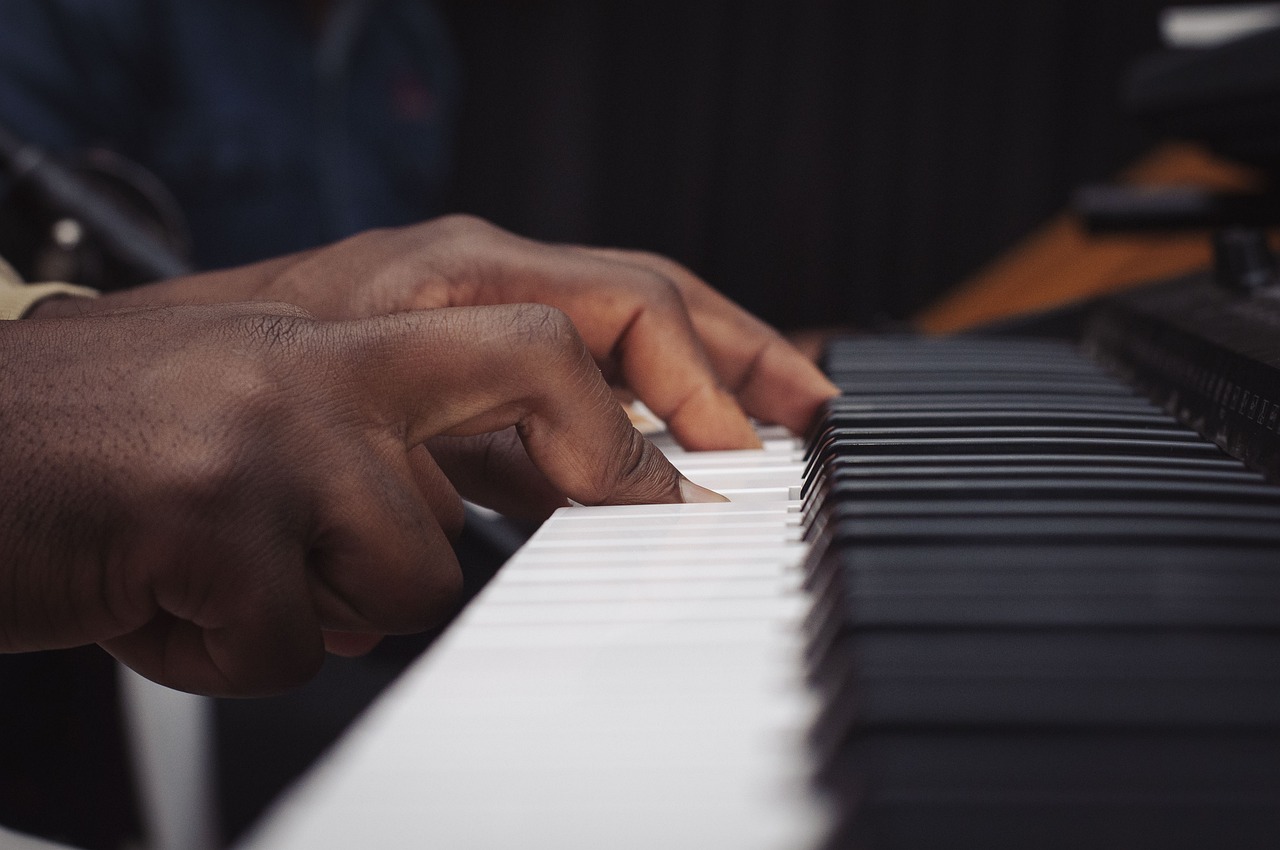
Copyright Issues
The advent of artificial intelligence in music creation has sparked a significant debate around . As AI-generated music becomes more common, the legal landscape surrounding ownership and copyright of these works is evolving rapidly. One of the core questions is: who owns the rights to a song created by an AI? Is it the programmer who designed the algorithm, the user who input the data, or the AI itself? This uncertainty creates a complex web of legal implications that could affect both artists and tech developers alike.
To illustrate the complexity of these issues, consider the following points:
- Ownership Rights: Traditional copyright laws were designed with human creators in mind. However, with AI systems producing music autonomously, the existing frameworks struggle to address who can claim ownership.
- Originality Concerns: Copyright law typically protects original works of authorship. But if an AI is trained on existing music, can the output truly be considered original? This leads to questions about derivative works and whether AI compositions infringe on existing copyrights.
- Legal Precedents: As AI continues to evolve, courts will likely need to establish new legal precedents that specifically address AI-generated content. This could take years and will require a careful examination of both technology and creativity.
Moreover, the music industry is already witnessing the emergence of AI-generated tracks that mimic popular artists' styles. This raises ethical concerns regarding the exploitation of an artist's brand and the potential for misrepresentation. If a song sounds eerily similar to that of a famous artist, how do we differentiate between genuine homage and copyright infringement?
In response to these challenges, some industry players are advocating for a new set of guidelines and regulations that cater specifically to AI-generated music. For instance, there are calls for a system that recognizes AI as a tool rather than a creator, ensuring that human artists retain ownership of their work while still benefiting from technological advancements.
As we navigate these murky waters, the music industry must strike a balance between embracing innovation and protecting the rights of artists. The future of copyright in the age of AI will undoubtedly require collaboration among musicians, technologists, and legal experts to forge a path that honors creativity while fostering technological growth.
- Who owns the copyright for AI-generated music? Currently, this is a gray area, with no clear legal framework. Ownership may depend on various factors including input data and programming.
- Can AI infringe on existing copyrights? Yes, if an AI-generated piece closely resembles an existing song, it could potentially infringe on copyright laws.
- What steps are being taken to address these issues? Industry stakeholders are calling for new regulations and guidelines tailored to the unique challenges posed by AI in music.

Quality vs. Quantity Debate
The advent of artificial intelligence in music production has sparked a heated debate about the balance between quality and quantity. On one hand, AI tools allow artists to produce music at an unprecedented pace, leading to a flood of new tracks hitting the market daily. This rapid production can be exhilarating for fans, offering them a vast array of choices. However, the question arises: does more music mean better music?
Many critics argue that the ease of AI-driven composition might lead to a saturation of the market with subpar content. When anyone with a laptop can generate a song, the distinction between a heartfelt creation and a formulaic piece of music can blur. It's akin to fast food — while it’s quick and convenient, it often lacks the depth and flavor of a well-cooked meal. This raises concerns about the overall quality of music available to listeners.
Moreover, the reliance on AI can sometimes stifle human creativity. When artists lean too heavily on algorithms for inspiration, they might inadvertently limit their own artistic expression. The essence of music lies in its ability to convey emotions and stories, something that a machine may struggle to replicate authentically. To illustrate this point, consider the following table that contrasts the attributes of AI-generated music versus human-created music:
| Attribute | AI-Generated Music | Human-Created Music |
|---|---|---|
| Speed of Production | High | Variable |
| Emotional Depth | Limited | Rich and Varied |
| Innovation | Formulaic | Creative and Unique |
| Market Saturation | High | Moderate |
While AI can assist in the creative process, the art of music should not be reduced to mere algorithms and data points. The challenge lies in finding a balance where technology enhances rather than replaces human creativity. Artists can leverage AI as a tool to explore new avenues of sound, but they must also remain vigilant about maintaining their unique voice and vision. After all, music is not just about the notes played; it's about the stories told and the emotions evoked.
As we navigate this new era of music production, the industry must prioritize quality over quantity. This might mean setting standards for what constitutes a well-crafted song, even in a landscape where AI plays a significant role. The focus should be on creating music that resonates deeply with audiences, rather than simply flooding the market with tracks. In the end, the true essence of music lies in its ability to connect with people on a personal level, and that is something that should never be compromised.
- What is the impact of AI on music quality? AI can produce music quickly, but there are concerns about the potential decline in quality due to market saturation.
- Can AI replace human musicians? While AI can assist in music creation, it lacks the emotional depth and creativity that human musicians bring to their art.
- How can artists maintain quality in an AI-driven landscape? Artists should use AI as a tool to enhance their creativity while ensuring they retain their unique voice and storytelling ability.
- What are the ethical considerations of AI in music? Issues such as copyright, originality, and the definition of authorship become more complex with AI's involvement in music creation.

The Future of Live Performances
As we step into a new era of entertainment, the future of live performances is being reshaped by the incredible capabilities of artificial intelligence (AI). Imagine attending a concert where the atmosphere is perfectly tailored to your emotions, where the lights dance in sync with the music, and where the overall experience feels uniquely crafted just for you. This is not a distant dream; it's becoming a reality, thanks to the advancements in AI technology. Artists can now leverage these tools to create immersive experiences that go beyond traditional concerts.
One of the most exciting developments in this realm is the emergence of virtual concerts. These AI-powered events allow artists to connect with fans from all over the globe, breaking down geographical barriers that once limited access to live music. Picture this: you could be in your living room, and with just a click, you're transported to a virtual venue where your favorite artist is performing live. This not only enhances accessibility but also opens up new revenue streams for musicians, as they can reach a larger audience without the constraints of physical venues.
Moreover, AI is revolutionizing stage production. The integration of AI technologies enables the optimization of lighting, sound, and visuals in real-time, creating an engaging atmosphere that captivates audiences. For instance, AI can analyze the crowd's reactions and adjust the lighting and sound accordingly, ensuring that every moment of the performance resonates with the audience. This level of interactivity is unprecedented and offers a glimpse into a future where live performances are not just shows but immersive experiences.
However, it's essential to consider the implications of these advancements. While AI can enhance creativity and engagement, it also raises questions about the authenticity of live performances. Will the reliance on technology detract from the human element that makes concerts special? This debate is ongoing, but one thing is clear: the fusion of AI and live music is set to create a new wave of entertainment that challenges our traditional notions of performance.
In conclusion, the future of live performances is bright and filled with potential. As artists and technologists continue to collaborate, we can expect to see increasingly innovative and personalized experiences. The evolution of live music, powered by AI, promises to not only entertain but also connect us in ways we've never imagined before.
- What are virtual concerts?
Virtual concerts are online performances that allow artists to connect with fans worldwide through digital platforms, often enhanced by AI technology. - How does AI improve live performances?
AI enhances live performances by optimizing stage production elements like lighting and sound in real-time, creating a more engaging experience for the audience. - Will AI take away from the human aspect of live music?
While AI introduces new elements to performances, the debate continues on whether it enhances or detracts from the authentic human experience of live music.
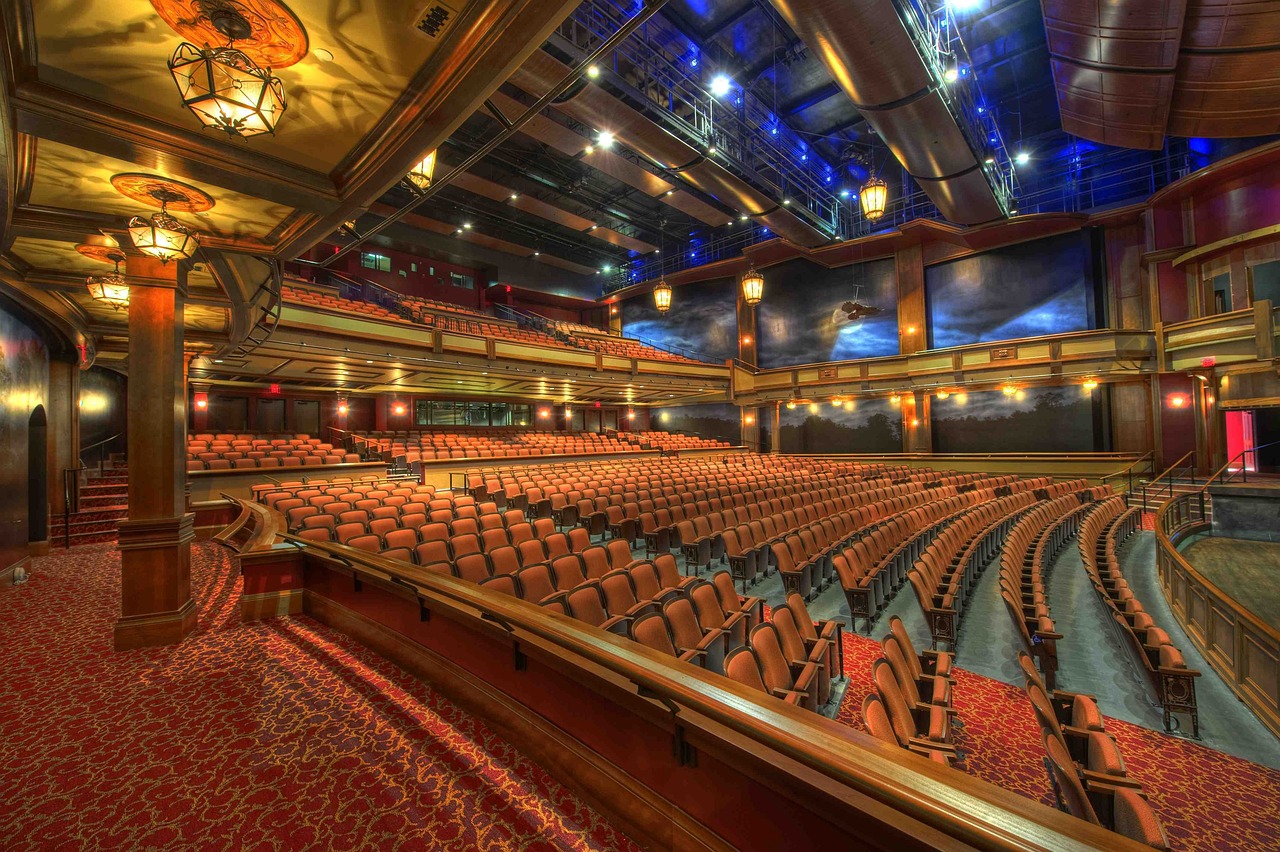
Virtual Concerts and AI
Imagine attending a concert from the comfort of your own home, where the atmosphere is electrifying, and the visuals are jaw-dropping. Virtual concerts powered by artificial intelligence are making this dream a reality, transforming how we experience live music. These concerts allow artists to reach fans across the globe, breaking down geographical barriers that once limited their audience. With AI, the possibilities are endless, creating a more immersive and interactive environment that traditional concerts simply can't match.
One of the most exciting aspects of AI in virtual concerts is the ability to personalize the experience for each viewer. Through advanced algorithms, AI can analyze audience preferences and behaviors, tailoring the concert experience to individual tastes. For instance, if a fan loves upbeat songs, the AI can adjust the setlist in real-time, ensuring that the performance resonates deeply with the audience. This level of customization not only enhances engagement but also fosters a sense of connection between the artist and their fans.
Moreover, AI can enhance the visual spectacle of virtual concerts. With technologies like augmented reality (AR) and virtual reality (VR), artists can create stunning visual effects that complement their music. Imagine a holographic display of the artist performing alongside mesmerizing animations that react to the beat of the music. This integration of technology creates an unforgettable experience that captivates viewers, making them feel as if they are part of something extraordinary.
However, it’s essential to consider the challenges that come with this technological evolution. While virtual concerts offer immense potential, they also raise questions about accessibility and the digital divide. Not everyone has access to high-speed internet or the latest devices, which could limit participation in these innovative experiences. Additionally, the intimacy of live performances—where fans can feel the energy of the crowd and the artist—may be difficult to replicate in a virtual setting.
In conclusion, AI-driven virtual concerts are revolutionizing the music industry, offering unprecedented opportunities for artists and fans alike. As technology continues to advance, we can expect even more exciting developments that will redefine how we experience live music. The future of virtual concerts is bright, and it’s a thrilling time to be a music lover!
- What are virtual concerts?
Virtual concerts are live performances that take place in a digital environment, allowing fans to attend from anywhere in the world using their devices. - How does AI enhance virtual concerts?
AI enhances virtual concerts by personalizing the experience for viewers, optimizing visuals, and even adjusting setlists based on audience preferences. - Are virtual concerts as good as live concerts?
While virtual concerts offer unique advantages, such as accessibility and immersive technology, they may lack the physical presence and energy of traditional live events.
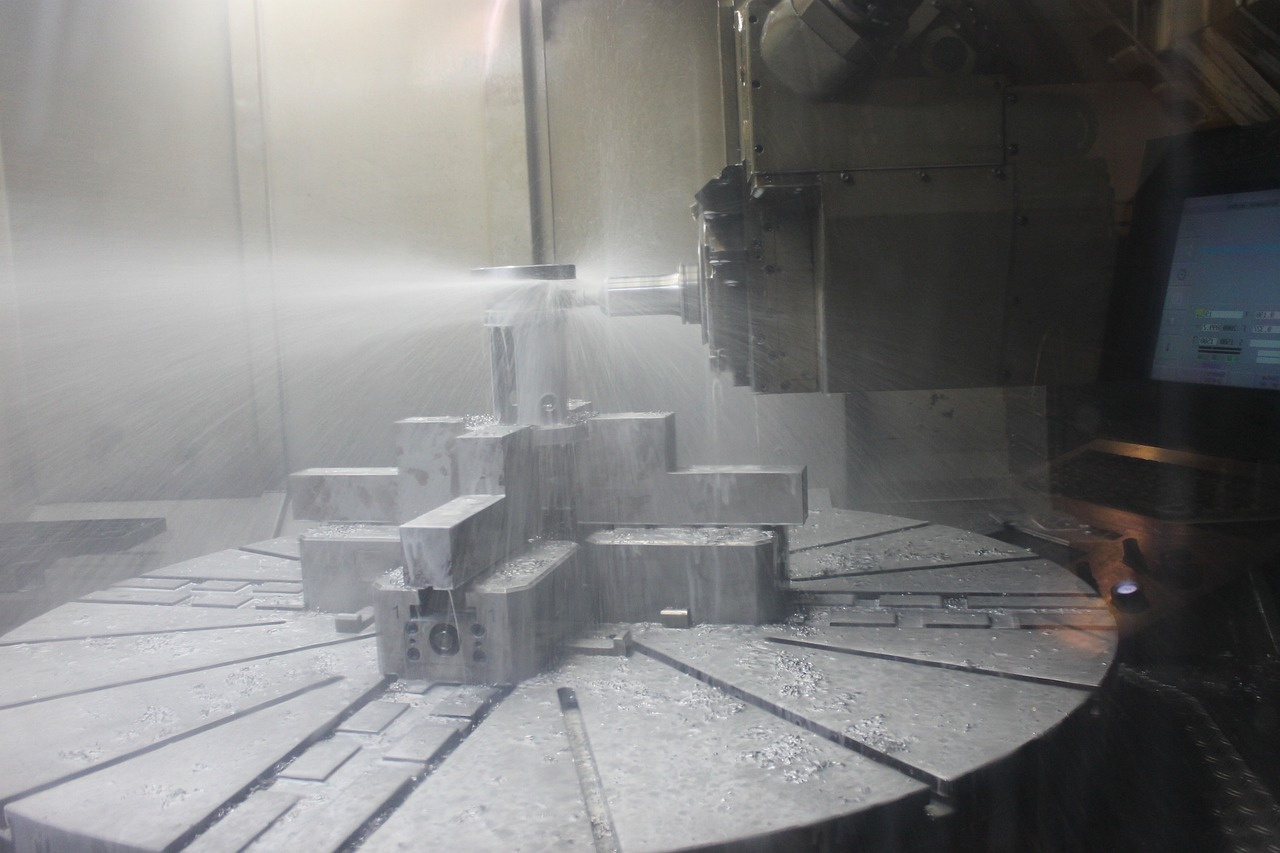
AI-Enhanced Stage Production
Imagine stepping into a concert where the lights dance to the rhythm of the music, the visuals sync perfectly with every beat, and the entire atmosphere feels uniquely tailored to the mood of the audience. This is not just a dream anymore; it's the reality brought to life by . The integration of artificial intelligence into live performances is revolutionizing how artists engage with their fans, creating a more immersive and unforgettable experience.
AI technologies are capable of analyzing vast amounts of data in real-time, allowing for dynamic adjustments during performances. For example, AI can monitor audience reactions through facial recognition and adjust lighting and sound accordingly. This means that if the crowd is particularly energetic, the stage can light up with vibrant colors, or if the mood is more subdued, the atmosphere can shift to something more intimate. The ability to adapt in the moment not only enhances the performance but also fosters a deeper connection between the artist and the audience.
Furthermore, AI can streamline the production process before the show even begins. With advanced algorithms, stage managers can optimize the layout of the stage, ensuring that every element—from lighting rigs to sound equipment—is positioned for maximum impact. This not only saves time during setup but also minimizes the risk of technical glitches during the performance. Imagine a world where artists can focus more on their craft, while AI takes care of the logistics—this is the future of live music.
To illustrate the impact of AI on stage production, consider the following table that highlights some of the key benefits:
| Benefit | Description |
|---|---|
| Dynamic Adaptation | Real-time adjustments to lighting and sound based on audience feedback. |
| Streamlined Production | Optimized stage setups that reduce setup time and technical issues. |
| Enhanced Visuals | AI-generated visuals that complement the music, creating a cohesive experience. |
| Personalized Experiences | Custom visuals and sounds tailored to specific audiences or venues. |
Moreover, AI can assist in creating stunning visuals that elevate the performance. By analyzing the music's tempo, mood, and genre, AI can generate visuals that enhance the sensory experience. This means that every concert can be a unique spectacle, with visuals that are not just an afterthought but an integral part of the show. The fusion of sound and sight creates a multi-dimensional experience that resonates with audiences on a deeper level.
In conclusion, as we move forward, the role of AI in stage production will only continue to grow. From real-time adaptations to personalized experiences, the technology promises to transform live performances into something truly extraordinary. The future of music is not just about the sound; it's about creating a complete sensory journey that captivates and engages audiences like never before.
- How does AI improve live performances? AI enhances live performances by adapting lighting and sound in real-time based on audience reactions, creating a more immersive experience.
- Can AI replace human creativity in stage production? While AI can optimize production and create visuals, human creativity remains essential for crafting the overall artistic direction of a performance.
- What are the potential downsides of AI in music? The reliance on AI may lead to concerns about authenticity and the quality of content, as well as ethical questions surrounding copyright.
Frequently Asked Questions
- How is AI changing music creation?
AI is revolutionizing the way music is created by enabling artists to generate new sounds and melodies. This technology fosters innovation, allowing musicians to explore creative avenues that were previously unimaginable. Imagine having a virtual collaborator that can suggest harmonies or even create entire tracks based on your style!
- What role do AI-driven music recommendation systems play?
AI-driven music recommendation systems analyze user preferences and listening habits to enhance personalized experiences on streaming platforms. These algorithms make it easier for listeners to discover new music tailored to their tastes, keeping them engaged and excited about their listening journey.
- How does machine learning impact music streaming?
Machine learning techniques allow platforms to predict user preferences, curating playlists that resonate with individual listeners. This means that the more you listen, the better your recommendations become, creating a unique listening experience just for you!
- What are collaborative filtering and content-based filtering?
Collaborative filtering uses data from multiple users to recommend songs, making music discovery more interactive. On the other hand, content-based filtering analyzes the features of songs, like genre and tempo, to suggest music that aligns with your tastes. It’s like having a friend who knows exactly what you love!
- How does AI empower independent artists?
AI tools provide independent musicians with accessible resources for music production, distribution, and marketing. This levels the playing field, allowing artists without major label backing to reach audiences and succeed in the industry.
- What ethical concerns arise with AI in music?
The integration of AI raises ethical questions about copyright and originality. As AI-generated music becomes more common, the legal landscape surrounding ownership of these works becomes complex, leading to debates about the role of human creativity in the artistic process.
- Is there a quality vs. quantity debate in AI music production?
Yes, as AI makes music production easier, there are concerns about flooding the market with low-quality content. This challenges traditional standards of artistry and raises questions about what defines good music in an age of automated composition.
- How will AI enhance live performances?
AI is set to transform live music experiences with interactive technologies that create immersive environments. This means audiences can expect more personalized performances that resonate with them on a deeper level, making concerts even more memorable!
- What are virtual concerts and how do they utilize AI?
Virtual concerts, powered by AI, provide new opportunities for artists to connect with global audiences. They transcend geographical limitations, allowing fans from around the world to enjoy live performances from the comfort of their homes.
- How does AI improve stage production?
AI technologies enhance stage production by optimizing various elements like lighting, sound, and visuals. This creates a more engaging atmosphere for live performances, ensuring that every concert is not just a show, but an unforgettable experience!




